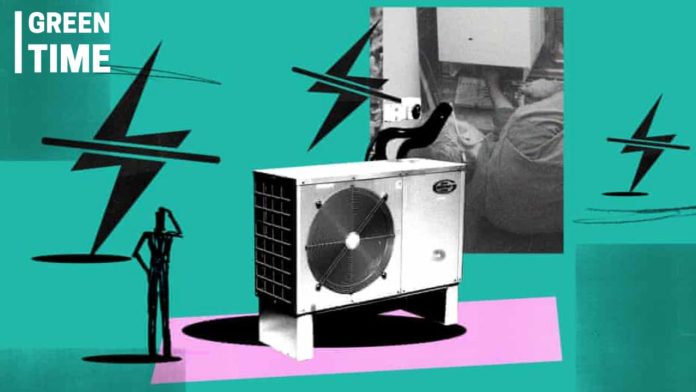The pathway to meeting the world’s climate targets is increasingly electric: fossil fuel boilers and vehicles are set to be replaced by electric alternatives, and heavy industry is preparing to transition from gas to low-carbon power. This shift presents an unprecedented challenge for electricity grids across developed economies, originally designed to transmit power from a few large power stations to homes and businesses with lower overall demand.
Critics argue that heat pumps, expected to play a major role in the electrification of heat, could lead to power surges during cold weather, overwhelming local grids and causing blackouts. Erica Malkin of the Stove Industry Association highlighted concerns about the energy network’s expansion and the potential for power outages. Additionally, Ross Clark of The Telegraph suggested that the UK’s increasing reliance on renewable energy and electric systems brings it closer to blackouts than acknowledged.
Despite these fears, the National Grid Electricity System Operator (NESO) provides a detailed blueprint for managing future electricity demand. NESO’s forecasts indicate that by 2035, the UK’s annual electricity demand could double due to the rollout of heat pumps and electric vehicles. Even so, the grid operator is confident that careful planning and technological advancements will prevent blackouts.
On a typical winter day in 2035, NESO predicts that renewable energy will contribute only 40% of the UK’s total generation due to low solar and wind power availability. To meet power demand, the UK would rely on gas and biomass plants with carbon capture technology, power imports via electricity interconnectors, and green hydrogen from renewable sources. Importantly, a more digital power grid will optimize renewable energy use, mitigating the impact of increased demand.
Regional grid operators are also preparing for the transition. Scottish Power has developed an AI-powered “digital twin” of its networks to simulate future changes and manage peak demand. UK Power Networks (UKPN) is monitoring real-time data from homes with electric heating, vehicles, solar panels, or batteries to understand and manage the impact of heat pumps on the grid.
However, the current targets and forecasts could change under the new Labour government, which aims for a net-zero electricity grid by 2030. This accelerated timeline may complicate the integration of heat pumps. Additionally, the role of hydrogen boilers in the UK’s net-zero strategy remains uncertain, potentially increasing reliance on heat pumps.
While the transition to a greener energy system presents challenges, there is no reason to believe that the UK will experience more blackouts if careful planning and infrastructure upgrades continue. With strategic investments and technological advancements, the future of the UK’s electricity grid remains robust.

